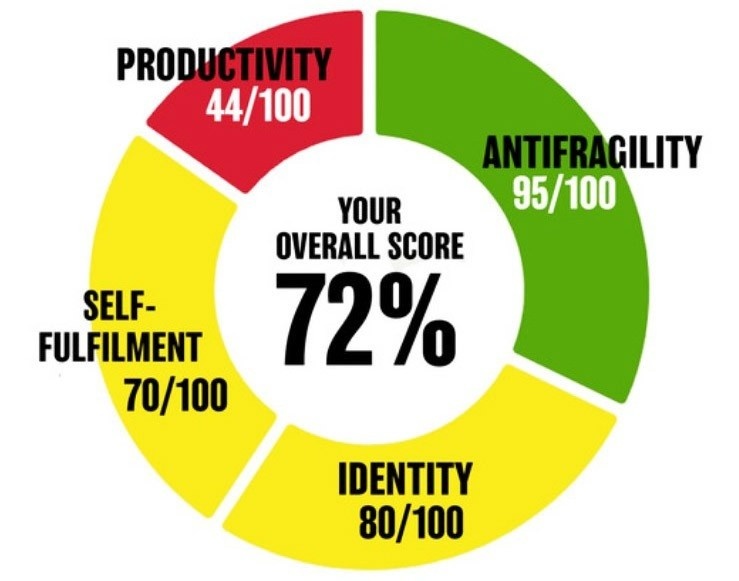SUMMARY
- In this episode we’re diving into some powerful coaching questions that you can use to help someone elevate their game or break through their barriers.
- First, self-ratings. They’re powerful, easy, and I use them often in my very first conversations. For example, I would ask someone to self-rate in three critical areas, maybe health, work, and home. With self-rating, you’re getting them to develop self-awareness in these critical areas, making them think of things to improve on, and eventually help them determine corrective action.
- The second question I like to ask is about their dreams. The way I phrase this question is: in three years’ time, if you were to say that they had been the best three years of your life, what would you be telling me? This really gets them thinking multidimensionally. I want them to get that spirit going, that vision for what that better future could be, so I can help them rally then to that future.
- The third question that I ask is, what are things that you know you should be doing, but for whatever reason, you’re not? We all have this, where we don’t have the willpower to do it. We’re afraid we might fail. We’re not sure how to progress.
- This is a great segue to the next question: let’s pretend we’re going to create the ultimate course on how NOT to be productive, what will be its contents? This will make them aware of the things that inhibit their productivity, putting them into the forefront to be seen. I ask them a follow-up question: how funny do you think it will be if you’re still living your life this way 10 years from now?
- Number five. After you’ve taken them through that ultimate course, I ask them: how are you actively contributing to the conditions that you say you don’t want in life? This might build upon earlier things that have come up in the previous questions, including the second question about their dreams, but it’s just another way to think about what are some of the gaps and the barriers that are in the way of them becoming all that they’re capable of becoming.
- And then I end things with two simple questions, number six and number seven. Number six is simply, how can I help? And then I end the whole conversation with, what did you find most useful from today’s chat? Because I want them to walk away with at least a singular idea, which if applied immediately, would create positive change in their life.
TRANSCRIPT
One of the most powerful things that you can do is ask somebody the right questions to elevate them to a higher level of performance, or to get them to think a little bit more deeply about the things that are holding them back. Today, I want to take you through some super powerful coaching questions that you can use, whether you’re a coach, a leader, or a manager.
Hi, my name is Eric Partaker and I help entrepreneurs, leaders, managers, individuals, reach higher levels of performance and all that they do, both in their business and in their life. Drawing on my experience from McKinsey and Company, helping build Skype before we sold it to eBay, as well as several of my own entrepreneurial journeys. So, let’s dive into some super powerful coaching questions that you can use to help someone elevate their game or break through their barriers.
Number one, first thing you can do, I call these set of questions self-ratings. They’re super powerful, super easy, and I use them often in my very first conversation with a potential new coaching client. So let’s say for example, I’m in a discussion with a CEO and I might ask him or her to self-rate in three critical areas. I’ll typically start with health and so I’ll ask them to rate themselves one to 10. If 10 is they’re the healthiest person in the world, or they’re as healthy as the best version of them would be across sleep, nutrition, exercise, the mental clarity that would come from a meditative or a spiritual practice, where would they self rate. If a 10 is they have absolutely no room for improvement and a one is that can only go up, where would they rate themselves? Once I get my answer, let’s say this person says a seven, then I asked the next key question, which is what’s just one thing that if you did more often, better or more consistently would raise your score?
And then I ask similar questions, self rating on the work front. So first was health front, and now going into the work front, and I’ll ask them once again, how would you rate yourself in your role? So with this example with the CEO, if a 10 is, you’re absolutely perfect as a CEO, there’s literally no room for improvement, and a one is you can only go up. Once again, where would you rate? And the person might say, say a six.
And once again, I’ll ask that key next question. What’s one thing that if you did more often, better and more consistently would improve your score. And then I’ll end with relationships or the home front and I’ll ask once again, if a 10 is you’re absolutely perfect. You’re the world’s greatest spouse or greatest parent or that there’s simply no room for improvement, and a one is you can only go up, where would you rate once again? And they say perhaps a seven and then that key question, again, what’s one thing that you could do better, more often and more consistently to improve your results?
Now, what’s great about this question is that you’re getting them to develop a self awareness of, well, where do I stand in these key dimensions on the health work and home front, but you’re also getting them to think about, well, what’s the one thing that they know that they could be doing to improve? And once you get that answer from them, you can do a follow on and say, well, what’s getting in the way of you doing that? Why aren’t you doing that right now or what would help you gather some momentum to take whatever that corrective action is that they’ve just highlighted.
The second question I like to ask us about their dreams. The way I phrase this question is simply in three years time, if you were to call me and say that they had been the best three years of your life, professionally and personally, what would you be telling me? And that really gets them thinking, it really gets them thinking multidimensionally, it gets them thinking not just about work but also home, also their health. Again, those three areas that we had talked about in the previous question, and it gets in dreaming again, because somewhere along the way from childhood to adulthood, we lose that ability to dream. And so I want them to tap into that, on the call, to get that spirit going, that vision for what that better future could be so that I can help them rally then to that future so that we can co-create that potentially with some ideas on that call or at least giving them some ideas to ponder on for the future.
The third question that I ask is what are things that you know you should be doing, but that you’re not? Because we all have this, right? We all have things that we know we should be doing, but for whatever reason, we’re not. We don’t have the willpower to do it. We’re afraid we might fail. We’re not sure how to progress. We might feel overwhelmed by the enormity of the different tasks that we need to tackle. And so I want to get that on the table too. So what are the things that they know that they should be doing, but that they’re not.
And then this is a great segue to the next question, number four, which is what I call the ultimate course. So I asked them to think about an area in their life that they’re not doing well in, an area in their life that they need to improve. It might have come up through the earlier questions and I’ll give you an example. Let’s say that they’re not good at being productive. And my question here here is, I say to them, well, let’s pretend we’re going to create the ultimate course on how to not be productive and we’re going to sell this course and if someone we’re to go through this course and take each of the modules in this program, they would, like you, learn how to be not very productive. If they’ve said that, for example, they’re not very productive.
And we go through each of these modules and I get them really thinking about what’s the first thing that you do that you think inhibits your productivity and they might say, in this example, I don’t have clear goals. I go, okay, great. So we’re going to create a module on not setting clear goals.
And then I ask, what’s the next thing that you do that inhibits your productivity and they might say I don’t prioritize my week. Great. Next thing after that, I don’t plan my day properly. Great. Next thing after that. I don’t minimize distraction or I’ll find myself on social media too often. Fantastic. And I’ll just keep going until I’ve collected all the things that contribute to that area in their life that they would like to improve.
And then I run through at the end. Okay. So we’ve created the ultimate course in how to not be productive. So if someone were to buy this course from you, and if they were in module one to learn how to not set goals, then to not prioritize their week, then to not plan their day properly, then to open themselves up to distraction throughout the day, like social media, do you think by the completion of that course that they would have achieved their goal of the course of not being productive? And usually there’s a bit of a laugh here and the person says, yeah, I think they would have achieved that, they would not be very productive.
And then right after that laugh, I ask the next key question, and how funny do you think it will be if you’re still living your life this way 10 years from now? And there’s usually a pause and then I’ll ask and do you think that not being productive, to what degree do you think that’s going to serve you in the dreams that you just told me about earlier? Is it going to help you achieve those dreams? Is it going to hold you back? And then usually there’s a pause before they say, well, no, it’s going to really hold me back.
And then I end with, so would you like some help in closing that gap? Would you like some help in creating a better system, a better course, that would make you more productive? And of course, usually the answer is yes. So that’s a very, very powerful frame or set of questions that you can use around creating the ultimate course, which is literally going to teach in someone else the very thing that they say that they’re doing that is holding them back in life.
Number five. So after you’ve taken them through that ultimate course and the set of questions within there, number five is I ask them, how are you actively contributing to the conditions that you say you don’t want in life? This might build upon earlier things that have come up in the previous question. It might build upon things that came up in earlier questions, but it’s just another way to think about what are some of the gaps and the barriers that are in the way of them becoming all that they’re capable of becoming.
And then I end things with two simple questions, number six and number seven. Number six is simply, how can I help? So in a coaching conversation, we’re essentially trying to determine, well, where are the gaps in this person’s life? Because the whole spirit of a coaching conversation is that they’re in one place, but they’d like to be in another place and we want to help them spiral up into that better future. So I ask that question, well, how can I help, after having gone through all of those different frames and ways of thinking, usually that question leads to the potential coaching client listing out or the person that you’re trying to coach on a team you’re leading or managing, it usually leads to them saying to you, well, I’d like you to help me on ABC or XYZ areas. And then I end the whole conversation with, what did you find most useful from today’s chat? Because I want them to walk away with at least a singular idea, which if applied immediately, would create positive change in their life.




